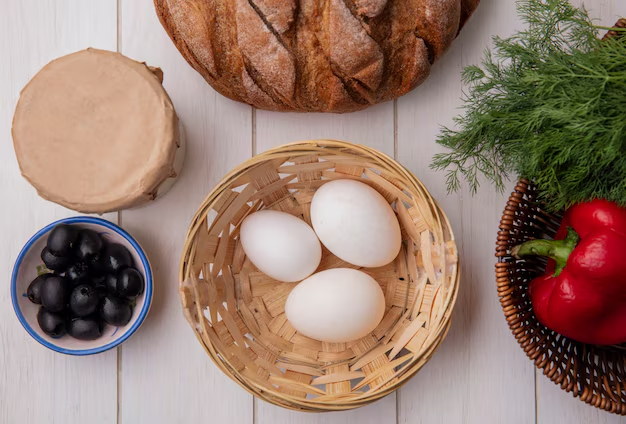How Long Can You Really Keep Eggs in the Refrigerator?
If you're like most people, you probably have eggs in your refrigerator right now, but have you ever wondered just how long those eggs are good for? Eggs are a staple in many households, beloved for their versatility and nutritional benefits. However, the importance of proper storage cannot be overstated, as this directly impacts their shelf life and safety. Join us as we explore the ins and outs of egg storage, answering that burning question: how long do eggs last in the refrigerator?
🥚 Understanding Egg Shelf Life
To fully appreciate how long eggs last, it's essential to understand what affects their freshness and safety. Eggs are a natural product, and their shelf life can be influenced by several factors. Let's dive into what these factors are:
1. The Importance of Storage Temperature
Eggs need to be stored at a consistent temperature to maximize their freshness. Keeping eggs refrigerated slows the growth of bacteria, maintaining their quality for a longer period. Typically, eggs stored in the refrigerator can remain safe and good-quality for several weeks.
2. Commercial vs. Farm-Fresh Eggs
Commercial eggs usually arrive in stores after being washed and sanitized to remove potential contaminants. This process might reduce some of their natural defenses, meaning they have a defined shelf life, commonly printed as a "sell-by" or expiration date on the carton.
Farm-fresh eggs, on the other hand, may come with their natural protective coating intact, giving them a potentially longer shelf life outside of refrigeration — but this is typically not advised once they are in your home.
3. The Role of the Carton
Egg cartons are not just for protection during transportation. They play a crucial role in prolonging shelf life by reducing moisture loss and preventing the absorption of strong odors from other foods in the refrigerator. Keeping your eggs in their carton is a small but effective step to ensure their longevity.
🕛 How to Tell If Eggs Are Fresh
Before diving into storage techniques and timelines, you might find yourself wondering if the eggs in your fridge are still good to use. Here are some tips to check egg freshness:
1. The Float Test
Here's a simple and popular method to check the freshness of an egg:
- Fill a bowl with water and gently place the egg in it.
- Fresh egg: Sinks to the bottom and lays flat.
- Moderately fresh egg: Sinks but stands upright.
- Old egg: Floats to the top, indicating it may be best to discard it.
The float test works because older eggs develop larger air cells, causing them to float.
2. Sniff Test and Visual Inspection
Before using your eggs, crack them open and conduct a quick visual and smell check:
- Spoiled egg aroma: Unmistakably foul odor.
- Visual cues: Unusual coloration or texture within the egg indicates spoilage.
Eggs should have a neutral smell, so if they don't, it's safer to discard them.
📅 Practical Guidelines for Storing Eggs
While understanding the theory behind eggs' shelf life is useful, practical storage tips provide actionable insights:
1. Refrigerator Storage
To optimize egg longevity:
- Temperature: Store eggs at or below 40°F (4°C).
- Location: Keep them inside the refrigerator rather than the door, as temperature fluctuations are minimized.
2. Storage Duration
If stored properly in the refrigerator, eggs can last:
- Fresh eggs: Often up to four to five weeks, but always check for off-odors or colors.
- Hard-boiled eggs: Should be consumed within a week, as cooking affects their protective layers.
3. Freezing Eggs for Extension
Did you know you can extend your eggs' usability by freezing them? Follow these steps:
- Separate whites and yolks: Beat eggs lightly before freezing.
- Storage: Use airtight containers or freezer-safe bags.
- Duration: Eggs can be frozen for up to one year.
Freezing is a great solution for preserving eggs for baking or cooking.
🗓️ A Quick Glance at Egg Storage
See this handy chart for a rapid overview of optimal egg storage:
| Egg Type | Refrigerator | Freezer |
|---|---|---|
| Fresh Eggs | 4–5 weeks | Not recommended directly |
| Hard-Boiled Eggs | Up to 1 week | Not recommended |
| Raw Egg Whites | 2–4 days | Up to 1 year |
| Raw Egg Yolks | 2–4 days | Up to 1 year (with sugar/salt) |
| Beaten Eggs | 2–4 days | Up to 1 year |
Important Tip: ❗️
Do not store eggs in the refrigerator door; this spot experiences more pronounced temperature changes that can prematurely spoil eggs.
🍳 Uses for Eggs at Various Freshness Levels
As eggs age, they lose their thick consistency and become more watery. Here's how you can use eggs at different stages:
- Very fresh eggs: Ideal for poaching due to their ability to hold shape.
- Older eggs: Perfect for baking or hard-boiling; their slightly looser whites can help increase the fluffiness of baked goods.
Knowing the best uses for eggs at different stages can help reduce waste and maximize culinary potential.
🎬 Final Thoughts
Storing and understanding the shelf life of eggs is not just about avoiding food waste; it's also essential for ensuring your meals are prepared safely. By following the guidelines above, not only can you extend the longevity of your eggs, but you're also equipped to enjoy them at their freshest and safest.
The next time you reach for eggs in the morning, you'll know just how to handle and store them to make the most of their shelf life. Safe storage ensures you enjoy their nutritious benefits without the risk — a win for your kitchen and diet. 🥚🍳✨

